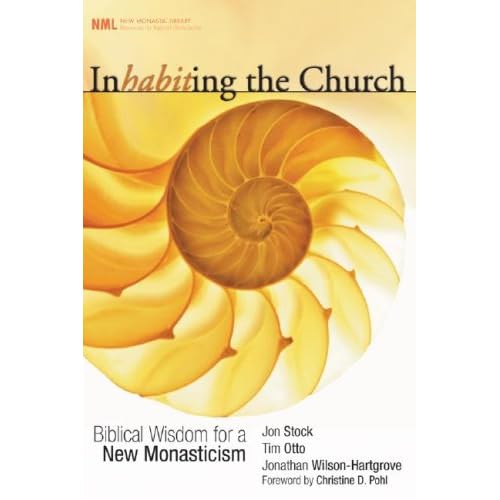12″What do you think? If any man has a hundred sheep, and one of them has gone astray, does he not leave the ninety-nine on the mountains and go and search for the one that is straying?
13″If it turns out that he finds it, truly I say to you, he rejoices over it more than over the ninety-nine which have not gone astray.
14″So it is not the will of your Father who is in heaven that one of these little ones perish.
-Matthew 18:12-14 NAS
My wife and I have been members of at least one church at all times for the past 17 years. Our attendance and our involvement has varied some, but I don’t think we ever missed long enough to earn the term “unchurched.” I’m glad for that, but I know that a major reason for our regular attendance is that we’ve always lived in a town where someone knows us.
The first place we lived was near her parents, and my wife Amy was a member at the Catholic church where we were married. Now we live in the same town where I graduated from high school, and I have become thoroughly obligated to attend the church where I was confirmed. We had a brief window of opportunity when we first moved back to skip out on church, but it was closed pretty quickly by friends and family who simply insisted.
Before too long, I found myself teaching an adult Sunday school class (can we come up with a better name than Sunday school, it sounds so felt-panel and koolaid?) and then a pastor informed me that I may well be teaching this class forever, so now I’m pretty much locked in.
The fact that I am connected to this area is a big part of why I’m expected to attend. But that’s rare in this area. We have lots of transplants — people who come from all over, who find it easy to attend occasionally, or not at all. We have had people who have joined our church one Sunday, and a year later qualify as unchurched. A year after that and we remove them from the membership roll.
We know what we should do about this, and we try. Small groups, phone calls, not overwhelming new members, but making sure they know what’s expected. Sometimes it works, sometimes it doesn’t. I think we do have to be more intentional, and I think a good portion of that responsibility lies on the pastor’s shoulders, because that is who people go to when they are thinking of joining the church, even if the reasons for joining have more to do with the congregation.
One of our pastors mentioned one time that he occasionally lost sleep over members who quit. We should all be more concerned about the missing members. My mother is one of the ones who no longer attends. I remember her making me go when I was under 18. She quit coming when our previous pastor offended some friends of hers. Her friends have been back for over three years. Now she’s waiting on a new pastor. I don’t expect to see her in July. Even though she has friends and family at the church, it’s not enough to combat the things she’d rather do on Sunday morning.
And I suppose that’s what I have to remember the most. Despite all our planning, our intentional work, members still have a choice. We can’t make them come, and once they come, we can’t make them be disciples (though my tendency towards legalism says we should try a little harder). When all else fails, we have to turn to God and ask that His will be done. Help us find the missing sheep, Lord, and help them to rejoin the flock.
